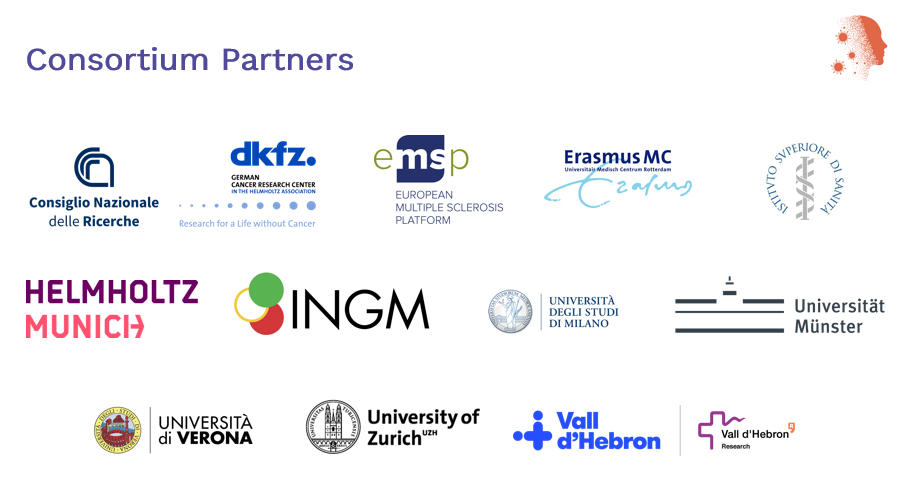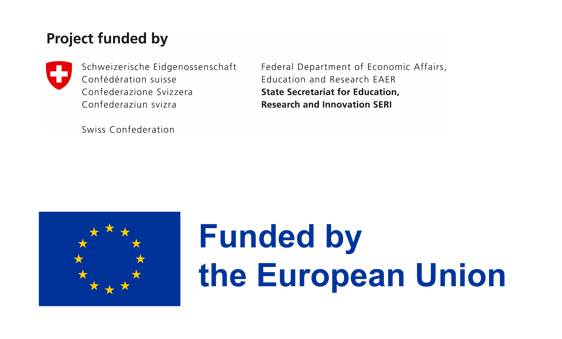
Could the Epstein-Barr Virus hold the key for treatment and prevention of MS? BEHIND-MS Explores New Research Frontier
29.11.2024
This week, leading researchers, clinicians, and patient advocates gathered in Heidelberg for the first annual meeting of the BEHIND-MS project, an EU-funded research initiative for understanding the role of the Epstein-Barr virus (EBV) in the development of Multiple Sclerosis (MS).
MS affects millions of people globally, and while current therapies can slow its progression, a definitive cure remains elusive. The BEHIND-MS project aims to clarify the link between between EBV infection and MS, offering new hope for earlier diagnosis, more effective prevention strategies, and innovative treatments.
EBV and MS: Insights from the BEHIND-MS Project
The EBV has emerged as a key focus in MS research due to its strong association with the disease: nearly all people with MS show evidence of past EBV infection. The BEHIND-MS project, led by Professor Henri-Jacques Delecluse at the German Cancer Research Center (DKFZ), explores this link by investigating how EBV interacts with the immune system to trigger neuroinflammation in genetically predisposed individuals. The project employs cutting-edge research models that combine human brain and immune cells with the virus, creating a sophisticated platform to unravel the mechanisms behind MS development. This approach aims to identify EBV-related biomarkers for earlier diagnosis, and pave the way for innovative prevention and treatment strategies.
The consortium partners of BEHIND-MS gathered for its first annual meeting in Heidelberg this week to review progress and discuss future directions. Each work package lead presented their first year’s achievements, showcasing their collective efforts for advancing MS and EBV research. They also shared the advances in mapping the complex interplay between EBV and immune cells in both the bloodstream and central nervous system of MS patients. The research reveals intricate patterns of immune cell behaviour, metabolic changes, and the crucial influence of genetic factors in disease development. The team also reported developments in pre-clinical mouse models, which provides unprecedented insights into the early stages of MS progression.
Patient involvement: A key element
Making research accessible to patients and advocacy groups is essential for informed decision-making, enhance engagement, and drive impactful advocacy. Simplified materials, such as brochures, videos, and online resources ensure that project findings and advancements are understandable to diverse audiences. A defining feature of the BEHIND-MS project is its commitment to integrate the perspectives of people with MS. Patient advocates, including EMSP representatives, are closely involved in the project’s communication and dissemination activities, helping to ensure that research aligns with the needs and experiences of the MS community.
Learn more about Behind MS : https://www.behind-ms.eu.


This project has received funding from the European Union’s Horizon Europe Research and Innovation Actions under grant no. 101137235 (BEHIND-MS) as well as the Swiss State Secretariat for Education, Research and lnnovation (SERI). Views and opinions expressed are however those of the author(s) only and do not necessarily reflect those of the European Union nor the granting authorities. Neither the European Union nor the granting authorities can be held responsible for them.
 Your Account
Your Account


